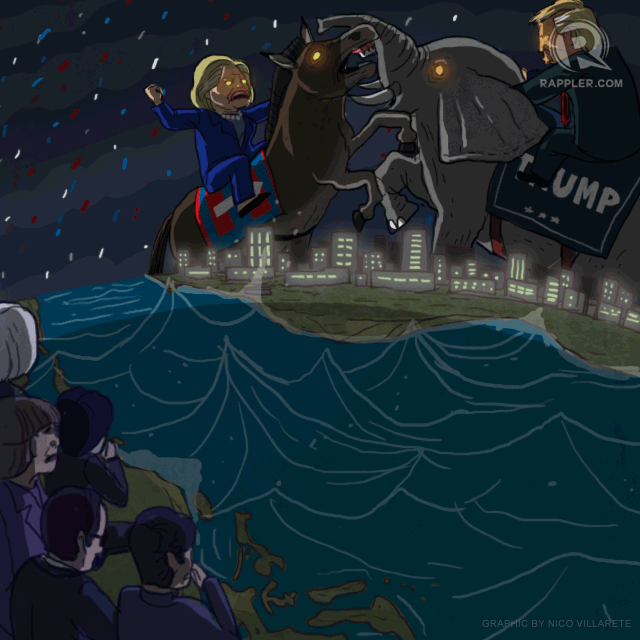In a few days, the United States will have a new president: either Hillary Clinton or Donald Trump. Recent polls show, however, Clinton leading in a tight race and leaving a slight chance for Trump to overtake her.
The election results matter not only for the US but for most of us in the world. After all, America is the world’s largest economy and is perceived to be the most powerful country, backed by the biggest military budget.
In Asia and Europe, the US has woven a vast security alliance that has underpinned relationships with allies. Of the 2 candidates, it is Trump of the Republican Party who has sent shock waves with his pronouncements on shaking up this infrastructure, taking up an isolationist position.
He has said that if he becomes president, he would be willing to withdraw US military forces from allied countries like Japan and Korea if they did not "significantly" increase their financial contributions. He also it was okay for these 2 countries to build their own nuclear weapons.
For the Philippines, the US functions as its largest ally, covered by the US-Japan security umbrella. If the US pulls out its military presence in the disputed waters of the South China Sea, the country will be vulnerable, leaving a vacuum once more.
(In 1992, the Philippine government kicked out the US bases as it asserted its independence. Soon after, China started sending its vessels to the South China Sea and building military structures.)
Antonio Carpio, a Supreme Court justice who helped the country win its arbitration case versus China, has said that only the US can stop these encroachments of China.
Europe is also feeling unsettled. Trump questioned the usefulness of the North Atlantic Treaty Organization (NATO) following the Brussels terror attacks in March 2016 that killed more than 30 people. He called the institution "obsolete."
A former NATO secretary general, Anders Fogh Rasmussen, said: "We don't know what will be the concrete policies of a Trump administration but if his statements were to be taken at face value it could be very dangerous for the world.”

On the economic front, analysts have pointed out that the Philippine economy "stands to lose the most" in Southeast Asia in a Trump presidency because of his extreme position on immigration.
"If US immigration policies tighten, leading to fewer migrant workers, this could impact remittances inflows back to the Philippines," according to the Business Insider.
How can we forget that Trump tagged the Philippines and other countries as terrorists? Separately, he called for a “mass deportation of the undocumented.”
In today's world, troubled by flash points from Syria to the South China Sea, we fervently hope the election results augur well for a more stable place. – Rappler.com